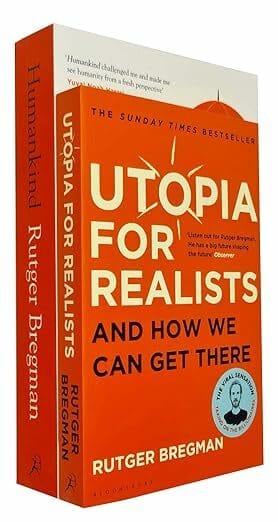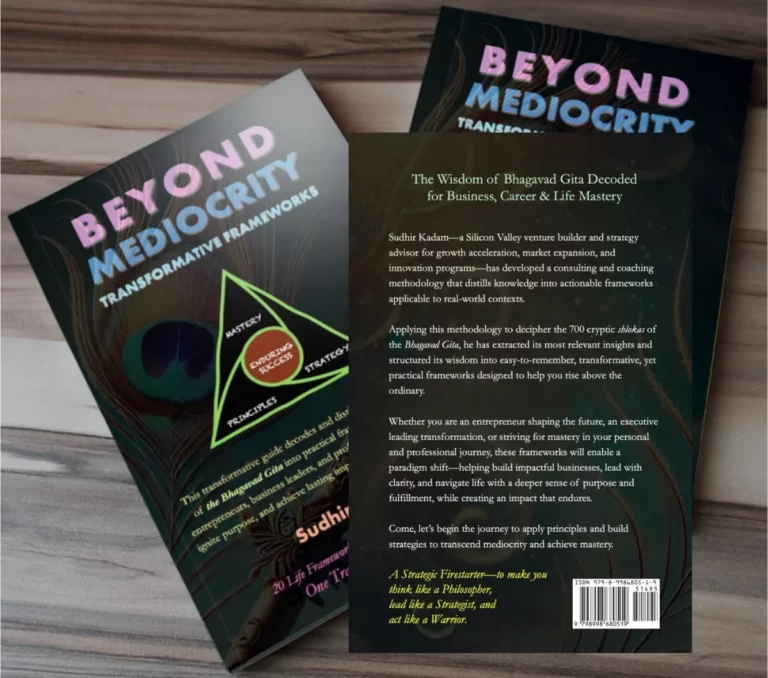Trading Poverty For Possibility- How Unlocking Human Potential Creates Prosperity
Groundbreaking research reveals how poverty limits cognitive abilities, reshaping thinking patterns and stifling innovation. Can we unlock 'lost Einsteins' through financial empowerment?

When we picture someone capable of changing the world, we often envision figures like Einstein or Thomas Edison. Yet according to groundbreaking research, millions of potential world-changers remain trapped by circumstances beyond their control. The most significant barrier? Poverty itself.
Dutch historian Rutger Bregman curates compelling evidence that poverty doesn’t just limit access to resources—it fundamentally restricts our cognitive abilities. ‘Ideas can and do change the world,’ Bregman argues, making the case for radical approaches to eliminate financial scarcity once and for all.
As we face global challenges from climate change to technological feudalism, the need for creative solutions has never been greater. Bregman’s radical proposition—that we could end poverty once and for all—suddenly seems less like idealism and more like practical necessity.
Utopia for Realists: And How We Can Get There
If Humankind is a book about who we are, Utopia for Realists is a book about where we could go. It’s a manifesto for rethinking the structure of society—not with abstract ideals, but with ideas that are bold, tested, and increasingly urgent.
The book argues that many of today’s “radical” policy ideas have roots in historical achievements that once seemed impossible. Democracy, civil rights, and universal education were once considered utopian. Why should universal basic income (UBI), open borders, or a shorter workweek be any different?
Bregman backs these ideas with compelling data. He explores how UBI trials have reduced poverty and improved well-being. He questions the outdated obsession with GDP and paid labor as the core measures of a successful life. He challenges the conventional wisdom that full-time work must dominate our existence and shows how a 15-hour workweek could unleash creativity, reduce burnout, and foster healthier communities.
In a world facing automation, ecological crisis, and widening inequality, Utopia for Realists is both a wake-up call and a roadmap. It reminds us that the status quo is not inevitable, and that optimism, when coupled with action, can be a powerful political force.
The Science of Scarcity
Princeton University research has revealed how poverty reduces brainpower needed for navigating other areas of life. The study found that financial concerns consume so much ‘mental bandwidth’ that people experiencing poverty have less remaining cognitive capacity for everything else.
This is not about individual capability but how scarcity reshapes our thinking. As Princeton researchers discovered, being poor reduces cognitive capacity more than going one full night without sleep. The implications are profound for sectors requiring creative problem-solving, from artificial intelligence to green energy and biotechnology.
Stephanie Plamondon Bair from Brigham Young University has documented how poverty changes decision-making patterns in the brain. Financial stress shifts thinking into ‘exploitative’ mode—focused on day-to-day survival—whilst diminishing ‘exploratory’ thinking needed for breakthrough discoveries.
Bregman’s talk highlights a troubling reality: countless potential inventors, researchers and problem-solvers never get the chance to pursue their ideas. Comments on his presentation emphasise how lifting people from poverty could unlock extraordinary potential across multiple fields.
Consider the mathematics involved. If cognitive capacity truly operates like bandwidth, then poverty essentially throttles the mental processing power of nearly one billion people worldwide. That represents an enormous waste of human potential—what researchers now call ‘lost Einsteins’.
Real-World Evidence
The theory gains credibility from large-scale experiments currently underway. GiveDirectly’s universal basic income study in Kenya represents the world’s largest and longest-term experiment of its kind, providing monthly payments to thousands of villagers since 2017.
Initial findings challenge common assumptions about cash transfers. Rather than reducing motivation to work, recipients became more productive and showed increased business investments. The study also found that providing lump sums enabled recipients to make larger investments compared to monthly payments.
Finland’s two-year pilot programme yielded similar insights. Recipients of unconditional income reported greater life satisfaction and experienced less mental strain than control groups. These outcomes suggest that financial security creates space for the kind of thinking that generates breakthroughs.
The discussion around Bregman’s theory reveals broader implications. When people aren’t consumed by meeting basic needs, they can think about longer-term challenges. This cognitive freedom becomes particularly valuable for tackling complex problems requiring sustained attention and creative solutions.
The technology sector offers a telling example. As one former Facebook employee noted, ‘the best minds of my generation are thinking about how to make people click on ads.’ Yet imagine if those same brilliant minds—plus millions more currently trapped by poverty—could focus on climate solutions, medical breakthroughs or educational advances instead.
Changing the Conversation
Bregman’s approach reframes poverty intervention from charity to investment. Rather than viewing cash transfers as costs, we might consider them as ways to unlock human potential on an unprecedented scale. The Kenya experiment findings suggest such investments could pay dividends through increased productivity and enterprise creation.
This perspective aligns with emerging research on scarcity mindset from behavioural economists like Sendhil Mullainathan. Their work demonstrates that abundant thinking—made possible by financial security—enables the kind of long-term planning essential for meaningful change.
Looking Forward
The comments responding to his presentation capture this shift in thinking. People increasingly recognise that eliminating poverty isn’t just about helping individuals—it’s about unleashing collective human potential to address our shared challenges. This mirrors the broader conversation about challenging conventional thinking to unlock untapped potential across all segments of society.
The research is clear: when people have their basic needs met, they don’t become complacent. They become capable of the kind of thinking that changes worlds. As we witness the growing impact of collaborative leadership networks creating meaningful social change, perhaps it’s time we treated human cognitive capacity as the valuable resource it truly is.
After all, the next breakthrough in renewable energy, life-saving medicine or artificial intelligence might be waiting in the mind of someone who simply needs the freedom to think beyond their next meal.
Do you want to share your story and inspire our readers ? Make The GOOD NEWS with us . Let’s start paving the way for a fairer, happier society together!






